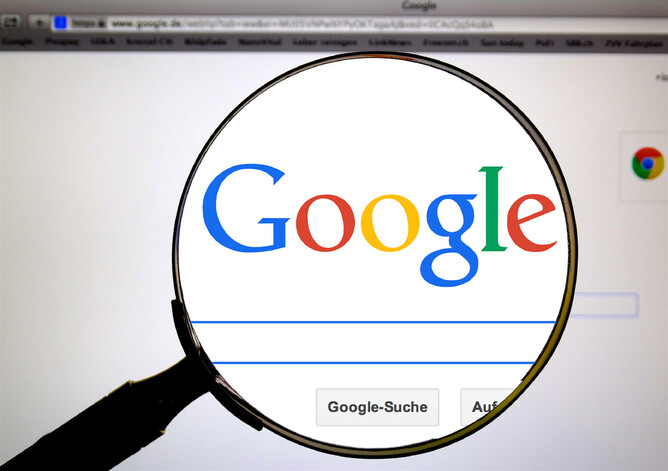A website is a must-have for any business and everyone is looking to get their website listed as high as possible by Google (other search engines exist - just!).
Whether it is a simple brochure site where potential customers can gain a high-level introduction to your business, a site that offers a detailed breakdown of the scope of products and services that you offer or a multi-layer, e-commerce site - a web presence is a critical necessity.
How high your website lists in Google is a major factor in determining how successful it will be in attracting new customers. There is an old saying that the best place to hide a dead body is on the second page of Google (although technically Google removed pages altogether back in December 2022 and we all now scroll continuously).
We love making businesses more successful, so with the insightful help of our friends at The Digital Doctor here is the ATN Partnership Top 10 Tips for Improving your Website Listing.
The Digital Doctor told us:
First things first:
Google looks at several factors when it is considering where to list a web page and from time to time it changes those factors and also the relevance (weight) that it attaches to them (often without telling anyone!).
So you need to keep things up to date - Google does not like an out-of-date website!
To assess how your website scores against these factors, Google sends out ‘Bots’ - automated ‘readers’ that crawl all over websites and tell Google how good, or bad, your website is.
What they are mainly looking for falls under four categories:
Relevance - how relevant is your website content to Google search queries
Quality - how well-written and presented is the content
Authority - how authoritative are you as a commentator
User experience - a positive experience improves a site’s ranking
And always remember that your website needs to appeal to both Google bots and people.
Key aspects to consider that help with the above are:
Don’t get too hung up on your home page
If your content is properly written, then people should be accessing your website at different points, depending on what they are looking for (think ‘Relevance’). We see far too many websites where all of the effort has been invested in the home page with other pages sadly lacking.
Blogs, blogs, blogs
Well-written blogs that answer key questions (searches) being asked on Google by your potential customers will help with your ‘Relevance’ score. Google is in the business of answering peoples’ searches, so well-written, quality articles that help answer those questions are gold dust.
Internal linking
When creating your content (including blogs) you must link relevant key terms to other pages on your website that specifically cover the topic - Google uses this as a measure of your authority on the subject.
If, for example, you have written a blog about the importance of the correct procedures when encapsulating Asbestos, a link to your Asbestos encapsulation service helps Google verify your authority.
Don’t overdo it, but do make sure that the Google bots can ‘see’ you have expertise in the areas that you are discussing.
Backlinks
One of the most powerful ways to tick the ‘Authority’ box for Google is to have other, quality websites link back to your content, known as backlinks. This is something that takes considerable time and effort and is not easy to achieve but is incredibly powerful.
Key terms - but think Goldilocks
Key terms are an important part of any content that you have on your website, but remember the Google ‘Quality’ factor - if the quality of your content is compromised by the use of key terms, in other words, it doesn’t read and flow naturally, Google will penalise the page.
KISS
Keep it Simple Stupid - in general, your content should be written so that an average 12-year-old can read it (you may be familiar with Flesch-Kincaid scores). Microsoft’s Word will analyse your content and give it a readability score.
Technical content may, naturally, have to be more advanced (so probably better in an article or blog), but most web pages will be read on a mobile device at speed - people simply do not invest time and energy in reading web pages.
KISS (Part Two)
Less is often more when it comes to the number of pages that you present to your audience. Your main navigation should be clean and clear, and allow readers (and bots!) to easily navigate around your site and answer the key questions about what your business does, and where it is located (also make sure you have created your Google Business profile).
Remember, that secondary pages do not necessarily need to be included in your main navigation, or even sub-navigation - they can simply ‘float’ and be available for internal linking as necessary, without confusing the high-level messaging.
Landing Pages
This really is a top tip. This is where you can break at least some of the rules and, instead of writing for readers and bots, just write for the bots - real Google fodder. These are pages that are ‘hidden’ in your main website because they are written to reinforce a specific Google SEO factor and tend to be quite lengthy when it comes to content.
Don’t forget the meta data! Give thought to what the bots really see: page titles and meta descriptions and label your images with alt text.
Be careful with duplicate content
Google no longer penalises for duplicate content, but it will simply filter it out. Some duplication may be necessary (to provide printer-friendly versions for example) and using a technique called ‘Canonicalization’ can allow Google to identify which pages of duplicate content should and should not be ignored.
Positive user experience
Google rewards (with a higher ranking) sites whose visitors have stayed longer, delved deeper into more pages and interacted with the content. This behaviour will only occur if the website is easy to use, informative and relevant.
Load speed is a crucial part of user experience, not only for the Google bots but also for your audience. Pages that don’t load quickly are a huge turn-off and result in people simply going elsewhere - pages need to load in less than 2 seconds so avoid large images or video files.
Talk to us
If you would like clear, concise, and easy to understand help and advice on any issues that you are concerned about, then you can contact us on 01474 326224. Alternatively, visit our website or email us info@atnpartnership.co.uk.




